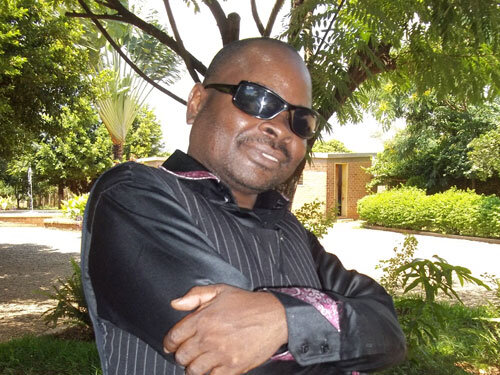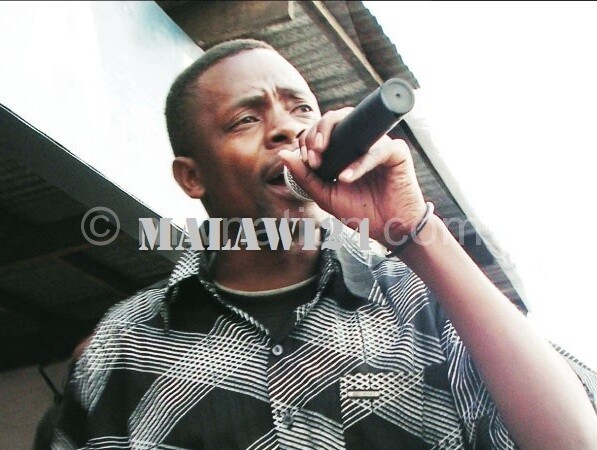
A friend, Sam Gikonyo, had read my articles on music and democracy in 1994 and 1999 suggested that I write on something of recent. By recent, he was meant five years ago. In my response, I asked a bit of patience from him so that an article for that is prepared. My mind, normally, works at its best and easily gathers information when I am writing on the subject matter.
I was supposed to also write on the 2004 and 2009 general elections before I finally come to 2014, the ‘catchment area’ for the interested reader. My apologies for taking time. This articles’ main focus will be on 2014. But it will, in passing look at 2004 and 2009. The just mentioned years, of all years, are the most important as far as music and politics in Malawi is concerned.

In 2004, it was two years after an overhaul change in our party political system. It had fragmented and offered Malawians several options on parties having the potential to assume power. Top musicians like Billy Kaunda were caught on the other side of the main routine, thus, MCP, UDF and AFORD. He had become bed fellows with UDF’s breakaway party, the National Democratic Alliance (NDA) under Brown Mpinganjira.
He had performed at its first convention. And in 2002, he came up with, probably, one of his career defining songs, ‘Mwataya Chipangano (Agalatiya)’. The song criticized President Muluzi’s intentions of continual in power. That was not the democratic covenant he had made with Malawians in 1994. He carried the feelings of most people in Malawi. His fearless lyrics stripped him of his innocent take on the Malawi society, something that had characterized his music before this.
Aside him, his mentor, Lucius Banda, found himself on the main route of Malawi politics. He was with the UDF and had sung for the party one of the most popular pro-party songs in Malawi, ‘Yellow’. Billy Kaunda was objective in his song, but Lucius Banda’s subjectivity opened a trend that would change everything for the next general elections.
Another top musician then, Charles Nsaku, although pro-UDF, came up with another career defining song, ‘Tidalire Ndani?’ In the song he asked, as a Malawian, who we should depend on. He criticized the Mgwirizano Coalition against UDF in the 2004 general elections. The song, although not remembered like ‘Mwataya Chipangano (Agalatiya)’ or ‘Yellow’, remains one of the most objective songs for the time.
Lucius Banda and Billy Kaunda went on to contest as Members of Parliaments for UDF and Independent, respectively. They all won, becoming the first musicians elected to be Members of Parliaments in Malawi. Although in their respective political positions, they all kept the success of their music careers and made themselves into versatile young politicians in Malawi.

But Malawi music is more than Billy Kaunda, Lucius Banda or Charles Nsaku. They do not wholly define the relationship of the two. But what they chose to do, especially in the 2004 general elections, changed the whole set up years later. It was no longer a bizarre site listening to a musician singing for a party or a politician. Lucius Banda, for the ‘Yellow’ song, was paid six million Malawi Kwacha. The monetary returns he gained would also become an inspiration to other years later.
- Every general election in Malawi comes in its own shape. That is what makes our politics not boring despite its systematic failures. By 2009, all the former ruling parties had lost their prominence leaving only the Democratic Progressive Party (DPP) under President Bingu wa Mutharika as the main player. He had delivered in his five years. Malawi was rated the second fasted growing economy in the world and she was food secure, in years.
He won the elections with a landslide. It was a reflection of what people felt of him on the ground. But prior to the elections, he got an endorsement from one of the then most prominent musicians, Phungu Joseph Nkasa. After rising to the top of the music heights in 2003, Nkasa’s career had gone down in the next five years. He was no longer that lyricist people had fallen in love with. It is not that he had lost his quality, Nkasa simply did not give a good care of his career.
But in his endorsement song, ‘Mose Wa Lero’ (The latter day Moses), Nkasa singlehandedly created a brand out of the President that saw him winning the elections. The ruling DPP used the song as its theme song in its campaign functions. It swayed the neutrals to the side of the ruling party. He was in the end rewarded by a subjective Malawi Order honor, together with another music great, Evison Matafale.
But what made ‘Mose Wa Lero’ click with Malawians? Besides the sound and the humor which is found in most Nkasa songs, his take on food security, the failures of the former ruling UDF and the economic growth offered Malawians a reality of facts they could not ignore. The song, on the other hand, divided his fan base and negatively affected his career. But it changed the shape of the election.
With the rise of urban music in Malawi, it meant the relationship of the two tilted towards that side as well. Although Nkasa and Nsaku came up with pro-ruling party, the People’s Party, their songs never mattered at all. They no longer had that objectivity they had shown in their earlier efforts. It was a group of urban musicians that came up with a significant, but ill-fated, song in the elections. The candidate they sung for lost.
But the reader asked for an ‘impact’. It is impossible to find out an impact using the qualitative take as in this article. But what can be established is that music in Malawi, since 2004, has sometimes been pro-party and pro-candidate. That has helped in bringing people for the party and the candidate together. Besides that, it has also helped in influencing the opinions of those people not decided on an election. That is how our music has played its multiparty democracy role.
Come 2019, expect no old guards like Nkasa or Nsaku to have songs that matter politically. Urban musicians will be the target of politicians. Although this article was not meant to be a take on that, such artists should learn from Nkasa’s fall. Diving into politics is risky, unless one is for the idea, and not the money that has been offered. But with Malawi politics largely based on party and characters, and not ideas, it is safe to take the middle or objective route, like Billy Kaunda in 2002 and Charles Nsaku in 2003.
*About the writer: Wonderful Mkhutche is a speech writer, a political scientist and a manuscript editor and developer.















Oyimba enawa ngati alimi a nthochi… Hee heeee! Zaaa Ziiiiiiii
Good analysis! That’s what journalists should do not just reporting anything happening in our society
wailemba boo aise
Nonsense ,
Musamerekendwe
Zaziiiiiiiiiiiii
Its unbeleiveable but true HIV/AIDS can be cure with herbal remedy, and i must share it to the world, my name is Chris Mhango , i was among the HIV positive patients, i have live with this virus for some years now, until i came across an article containing how someone who was positive became negative, through the help of a traditional doctor called DR ABUMEN, at first i doubt it, so i decide to talk to a friend about it, i was advised its not real, but i was desperately in need of something to get rid of the virus from my blood, although i was living on ARVs, but i just need to get rid of the virus and become negative again, so at first i contacted the person that shared the testimony to know more about the cure and DR ABUMEN, after some series of chat i got the informations i need from the person and i contacted DR ABUMEN, i told him i needed his HIV cure, and he told me how to get it and i sent my address to him, within some days the medicine was sent to me with the instruction of how to use it, after using it according to the instruction, i went for test and the result was NEGATIVE, i was like this can’t be true that finally am negative, i went to a different hospital to confirm and to be sure, and the result was still NEGATIVE so i called DR ABUMEN and thanked him, he told me he wants the world to know about his his HIV cure, that i should broadcast his contact by sharing his testimony, if you are in need of DR ABUMEN please contact him through this details, email address ([email protected]) or you can call or whatsapp him on his number, (+2347085071418)
Achisilu awa saziwa zomwe amafuna